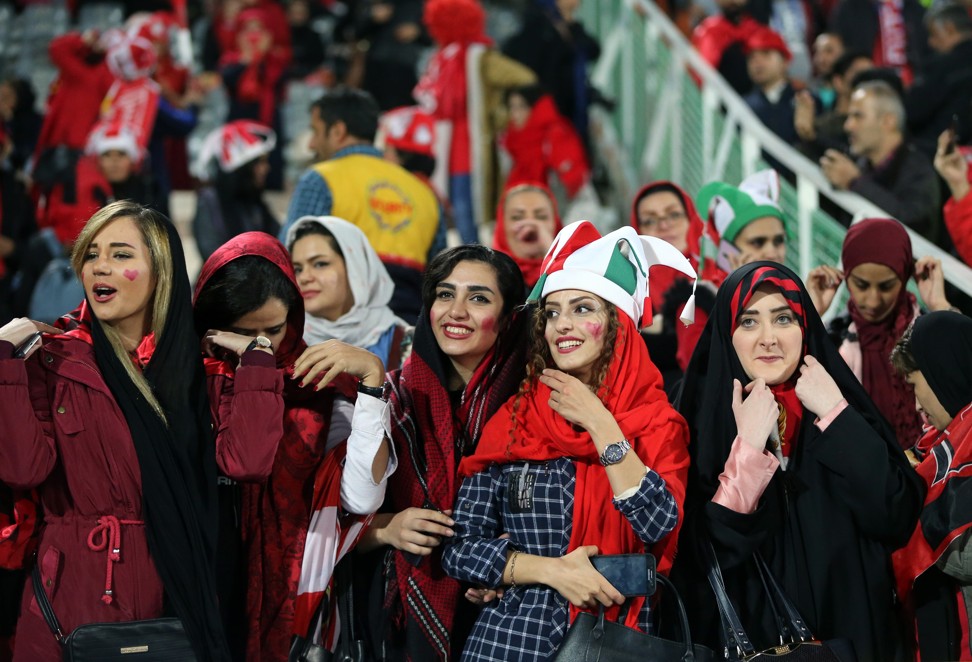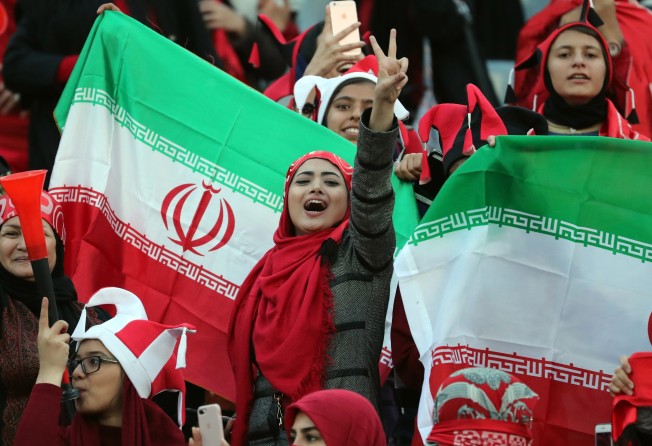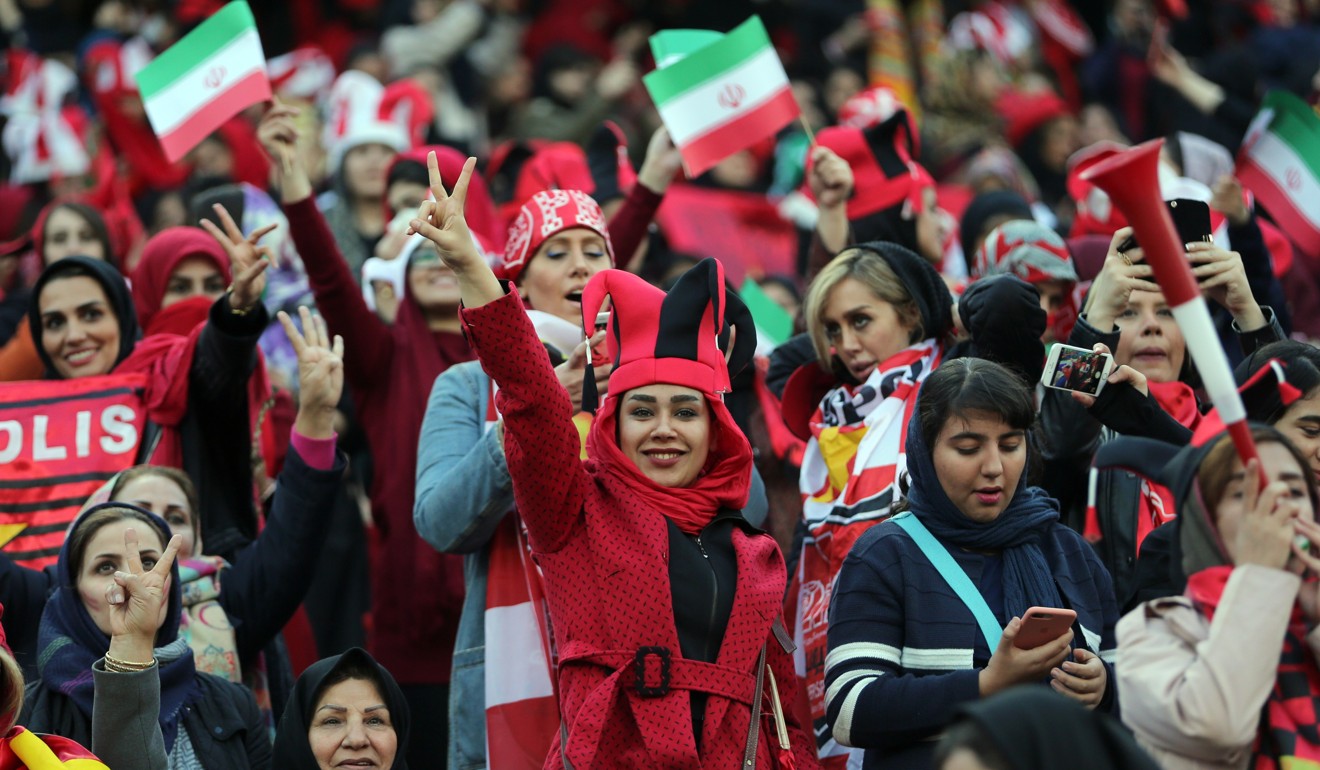
Iran lifts decades-long ban on women attending soccer games at stadiums
- Iran began barring women from watching sports matches decades ago, with clerics saying they must be shielded from the sight of semi-clad men, among other things
- Over the years, women have tried various methods to circumvent the ban, including entering stadiums wearing fake beards

Iran’s World Cup qualifier against Cambodia on Thursday is more than just a soccer match, at least for Iranian women.
For the first time in almost 40 years since the Islamic revolution, they can secure a ticket to the Azadi Stadium to watch a competitive men's national team game.
Something which is perfectly normal for much of the rest of the world was a long and hard fight for Iranian women. The strict Islamic rules of the ultraconservative clergy had prevented them from entering.
“On Thursday, Iranian history will be written in the Azadi Stadium,” wrote one fan on social media.
Women have even entered stadiums wearing fake beards to try to circumvent the ban and last month a woman died after setting fire to herself in protest at not being allowed in a stadium.
World soccer’s governing body Fifa will see the partial lifting of the ban as a major victory.
President Gianni Infantino had threatened to exclude Iran from the 2022 World Cup in Qatar if women continued to be banned from stadiums for live men's internationals.
I still can’t believe this is going to happen … now I can experience everything in person
“What even President Hassan Rowhani and his ministers could not do was made possible by women,” said a political scientist in Tehran, who asked not to be named.
The political class had wanted change but the powerful clergy had largely blocked the move until now.

Around 100 Iranian women were allowed to watch their men’s national team during a friendly match with Bolivia last October, but there were tight controls and most were relatives of team players and officials.
“The women's visit to the stadium is the first success of their resistance to discrimination,” tweeted Iranian politician Shahrbanoo Amani.
For the match against Cambodia, between 3,500 and 4,000 tickets were allocated to women online in four special stands and were sold out in a few minutes. According to the daily Etemad, at least two more sections of the stadium are to be made available to women.
The lifting of the stadium ban only applies to World Cup qualifying matches and not to games in the Iranian championship or the Asian Champions League.
One of the 3,500 women to have secured a ticket was Raha Poorbakhsh, a soccer journalist.
“I still can’t believe this is going to happen because after all these years of working in this field, watching everything on television, now I can experience everything in person,” she said.
People on the streets of Tehran said they supported the decision to allow women into stadiums.
“I would like there to be freedom for women, like men, to go freely and even sit side by side without any restrictions, like other countries,” said a woman who gave her name only as Hasti.
Nader Fathi, who runs a clothing business, said the presence of women could improve the atmosphere in stadiums.
But he said “they will regret it” if they are exposed to “really bad swear words” and “bad behaviour”.
The bumpy road Iranian women have travelled to gain free access to stadiums has not been without tragedy.
Sahar Khodayari died last month after setting herself ablaze outside a court in fear of being jailed for attending a match.
Dubbed “blue girl” because of the colours of the club she supported – Tehran giants Esteghlal FC – she had reportedly been detained last year when trying to enter a stadium dressed as a boy.
Her death sparked an outcry, with many calling for Iran to be banned and matches boycotted.
The judiciary dismissed reports she had been told she would be jailed, and Khodayari’s father said she did not “sacrifice” herself for any cause.